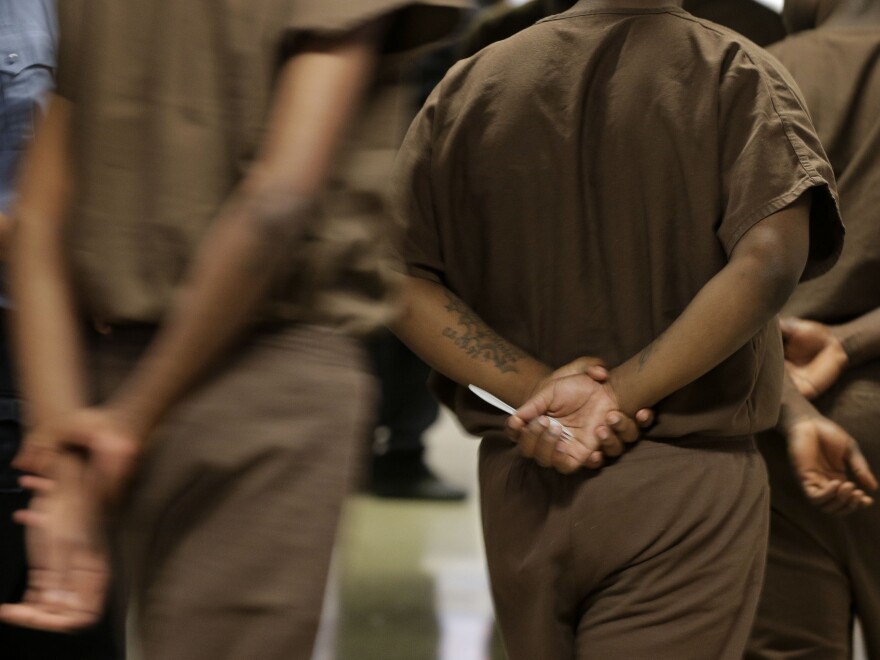Adolescent inmates are subject to "excessive and unnecessary force by correction officers" at New York's Rikers Island, the Justice Department has found in a civil rights investigation.
"The extremely high rates of violence and excessive use of solitary confinement for adolescent males uncovered by this investigation are inappropriate and unacceptable," Attorney General Eric Holder said in a statement.
Correction officers use force as "punishment or retribution," the report, released Monday, concludes. Guards overseeing adolescents — who tend to be among the least experienced — often mete out blows to the heads and faces of inmates. They are especially prone to using force in areas that lack video surveillance cameras.
"The report also found the department relied to an 'excessive and inappropriate' degree on solitary confinement to punish teenage inmates, placing them in punitive segregation, as the practice is known, for months at a time," The New York Times reports.
Federal investigators found that 308 of the 705 adolescent males in custody as of Oct. 30, 2012 — 43.7 percent — had been subjected to the use of force by staff at least once. The report notes that the number of injuries sustained by inmates has increased since then.
"For adolescent inmates, Rikers Island is broken," Preet Bharara, the U.S. attorney for Manhattan, said at a news conference. "It is a place where brute force is the first impulse rather than the last resort, a place where verbal insults are repaid with physical injuries, where beatings are routine, while accountability is rare."
The report details a number of recommended changes, including revisions to use of force and solitary confinement policies, increasing supervision of staff and putting more cameras in areas housing adolescents.
The Justice Department's investigation was not criminal in nature and no charges have been filed. The report notes that Joseph Ponte, who is considered a prison reformer, has only recently taken over as New York City's correction commissioner "and was not present" when the misconduct occurred.
Copyright 2021 NPR. To see more, visit https://www.npr.org. 9(MDEwMTk5OTQ0MDEzNDkxMDYyMDQ2MjdiMw004))



